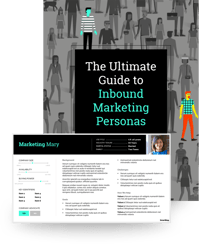
4 Reasons You Need a Keyword Strategy Before You Publish Content
December 11, 2013
By Amber Kemmis
 Those new and old to inbound methodology know how important content and keywords are to inbound marketing. However, many marketers make the mistake of rushing to publish content without first considering a keyword strategy. If you want your content to be successful, you absolutely have to develop a keyword strategy first. In order to have a keyword strategy, you should research your content marketing keywords to determine which keywords are more likely to convert leads and ultimately close more sales. In other words, before you start cranking out content, you have to develop a keyword strategy based on thorough keyword research. Here are 4 reasons your keyword strategy should always come before any content is produced:
Those new and old to inbound methodology know how important content and keywords are to inbound marketing. However, many marketers make the mistake of rushing to publish content without first considering a keyword strategy. If you want your content to be successful, you absolutely have to develop a keyword strategy first. In order to have a keyword strategy, you should research your content marketing keywords to determine which keywords are more likely to convert leads and ultimately close more sales. In other words, before you start cranking out content, you have to develop a keyword strategy based on thorough keyword research. Here are 4 reasons your keyword strategy should always come before any content is produced:
Although You May Not Care, Search Engines Certainly Do
Google, Bing and any other search engine out there will use your keywords to determine how relevant your content is to a particular query. Using the wrong keywords or none at all means your site cannot be found by your potential customers through organic search.
Tip: If you are first starting out and don't have analytics to develop a keyword strategy, ask your sales team to give you some common terminology and objectives used by prospects. Even if you have analytics to guide your keyword strategy, it can still be beneficial to get feedback from sales because those keywords may or may not be delivering quality leads.
You Need to Make Content Measurable
Every marketer knows that it is important to prove the ROI of a marketing channel. In fact, a study by Fournaise Marketing Group found that 69% of CEOs had given up on marketing KPIs and KPOs because marketers had consistently failed to prove their contribution to the company. A keyword strategy enables you to prove the ROI of content on your website.
Tip just for Hubspot Users: Use the keyword tool to create a campaign for your top target keywords. This makes it easy to monitor conversions on those target keywords.
Jargon, Jargon and more . . . Jargon
A common tendency without a keyword strategy in place is to use company jargon. Although you may call your product a “jiggumabob,” the rest of the world is calling it a “whatchamacallit," and you will never get found. Not to mention, this usually results in very few lead conversions due to misled visitors or, even worst, poor lead quality.
Tip: If you want to prevent complaints from the sales team when you consistently deliver bad leads, have a few people who are not familiar with your product read a couple pages on your website. If they can explain correctly what you do and aren't thrown off by your strange "lingo," you probably don't have a jargon problem.
It Guides Your Content
Without a keyword strategy, content becomes subjective. Not only does it often become about hot topics, executives will tend to push topics that they find interesting, which is not always what your target audience finds interesting. A keyword strategy will help determine the content you should be creating and also serve as a “guideline” for topics.
Tip: Create a content calendar by starting with keywords then creating titles. Make sure there is a variety of your target keywords within the content calendar.
Can you think of any other reasons to start with a keyword strategy instead of clicking that "Publish" button? Let me know in the comments section!

About the author
Amber Kemmis was formerly the VP of Client Services at SmartBug Media. Having a psychology background in the marketing world has its perks, especially with inbound marketing. My past studies in human behavior and psychology have led me to strongly believe that traditional ad marketing only turns prospects away, and advertising spend never puts the right message in front of the right person at the right time. Thus, resulting in wasted marketing efforts and investment. I'm determined to help each and every one of our clients attract and retain new customers in a delightful and helpful way that leads to sustainable revenue growth. Read more articles by Amber Kemmis.







